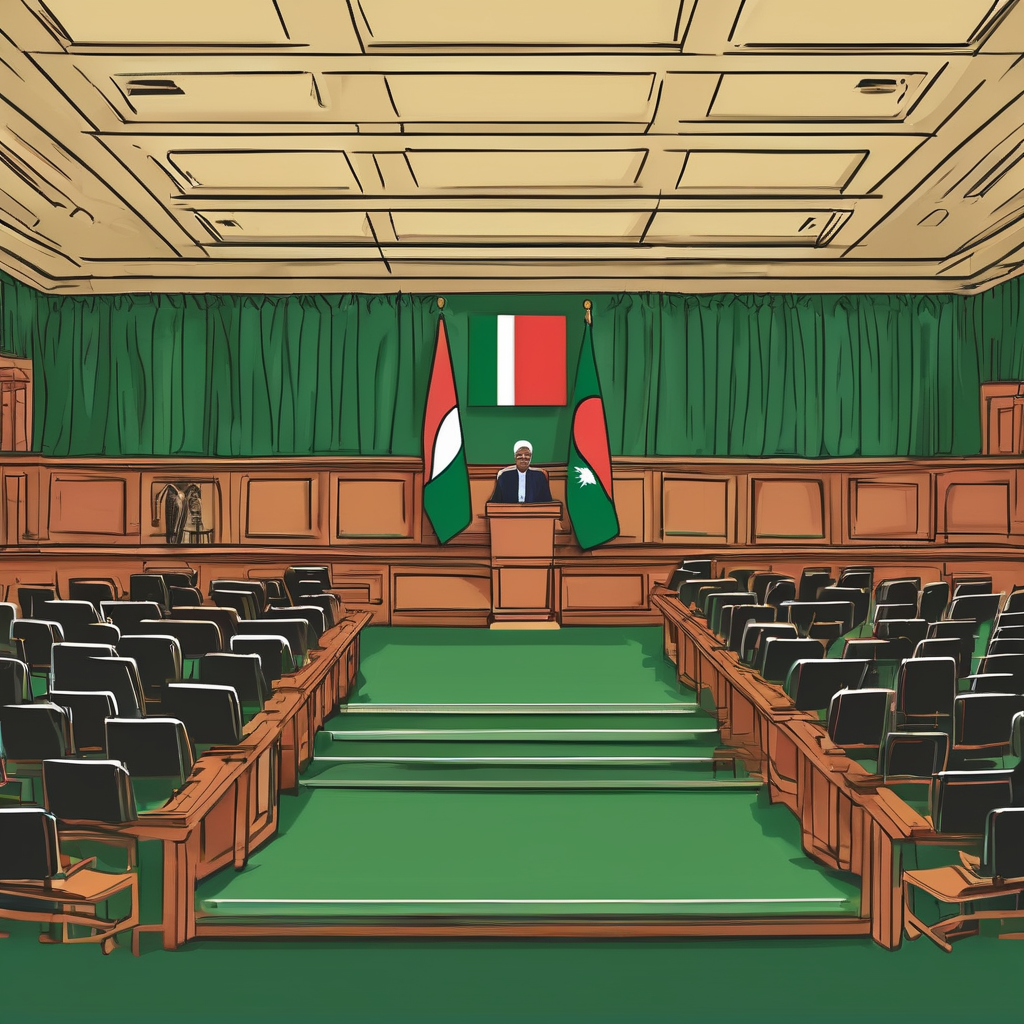A recent court ruling in Bangladesh sentencing former Prime Minister Sheikh Hasina to death has heightened the already tense political atmosphere in a nation grappling with the repercussions of her long tenure and last year’s violent suppression of student-led protests. The verdict has reignited calls for her immediate execution from the families of those affected by the protests, while the Bangladeshi government has pursued her extradition from India, where she sought refuge after fleeing the country.
Supporters of Hasina and the Awami League party are threatening widespread unrest if the party is excluded from participating in the upcoming elections set for February. This ongoing crisis places Bangladesh in a precarious situation filled with political uncertainty, as citizens watch closely for a resolution to one of its most tumultuous periods.
The court’s ruling has been met with cheers from families seeking justice for the deaths of over 1,400 individuals during the protests, yet it has also strained diplomatic ties with India, which has seen multiple unsuccessful attempts at extraditing Hasina. Amid these tensions, Sajeeb Wazed, Hasina’s son, has warned that significant unrest may ensue if the exclusion from the elections continues, cautioning that such actions could disrupt the country’s economy, heavily dependent on a $4.7 billion bailout from the International Monetary Fund and its garment industry exports.
Victims’ families are adamant about seeking justice. One father, Abdur Rab, voiced the prevailing anger, stating, “True justice will come only when the hangman’s rope tightens around her neck,” as he displayed a banner declaring “Killer Hasina.” Memories of economic progress under Hasina’s leadership have been overshadowed by the growing call for accountability regarding her government’s human rights abuses and authoritarian tactics.
Hasina has maintained that the ruling is politically motivated, asserting that it stems from a “rigged tribunal” orchestrated by an unelected government. As elections approach, many anticipate a resurgence of her archrival, the Bangladesh Nationalist Party, adding to the prevailing uncertainties of the electoral landscape.
In the midst of this turmoil, the interim government, led by Nobel Laureate Muhammad Yunus, faces increasing pressure to facilitate Hasina’s extradition, a task complicated by India’s careful approach. New Delhi has reiterated its commitment to peace and stability in Bangladesh while recognizing the political complexities inherent in the extradition process.
Political violence has surged in light of these tensions, as recent bombings and protests highlight deep societal divides. Law enforcement has reacted to unrest by detaining Awami League activists, intensifying confrontations as the elections draw near.
Yunus’s interim administration is dedicated to fostering a peaceful environment leading up to the elections, emphasizing the importance of stability and addressing the grievances of past violence victims. There is a clear focus on restoring democratic governance while also responding to the concerns of various groups, including public sector workers who have recently voiced their discontent with government measures.
Despite the prevailing chaos, there remains a glimmer of hope. The active involvement of citizen movements alongside political reform efforts could potentially usher in a more accountable governance framework in Bangladesh. With careful navigation of the complex political landscape and a focus on human rights and social justice, there may still be a path toward renewed democracy in the country.
